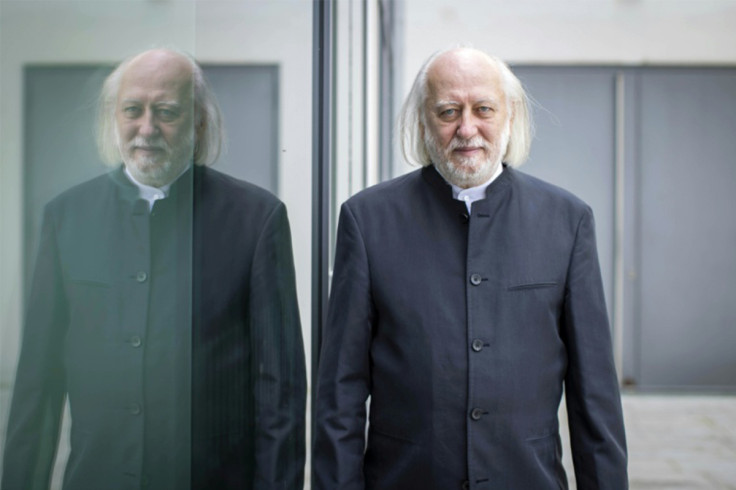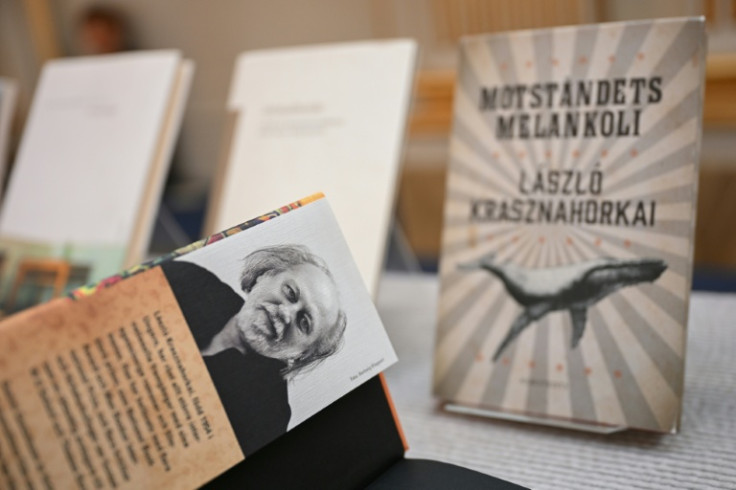Nobel Prize 2025: Who Is László Krasznahorkai? The Reclusive Genius Behind Literature's Top Honour
The Hungarian author bagged the highest honour for Literature from the Swedish Academy

Nobel Foundation declared that Hungary's László Krasznahorkai won the 2025 Nobel Prize in Literature.
'The Nobel Prize in Literature for 2025 is awarded to the Hungarian author László Krasznahorkai for his compelling and visionary oeuvre that, in the midst of apocalyptic terror, reaffirms the power of art,' Mats Malm, Permanent Secretary at the Swedish Academy, said on Thursday.
The 71-year-old novelist became famous for writing incredibly long, winding sentences, particularly in his 400-page 2021 book 'Herscht 07769,' which only has a single period throughout the novel.
The Boy from a Historic Hungarian Town
The author was born in the eastern Hungarian town of Gyula on 5 January 1954. His father, György Krasznahorkai, worked as a lawyer while his mother, Júlia Pálinkás, served as a social security administrator.
His father kept his Jewish background a secret. He only learned about it when he turned 11 years old.
Krasznahorkai studied at the Erkel Ferenc high school in 1972, then moved to the József Attila University (now the University of Szeged) to study law. He later on transferred to Eötvös Loránd University (ELTE) in Budapest in 1976 to complete his legal studies.
After finishing law in 1978, he enrolled at the ELTE Faculty of Humanities and received his diploma in Hungarian language and literature.
“To read books gives us more power to survive these very difficult times on Earth.”
— The Nobel Prize (@NobelPrize) October 9, 2025
When we spoke to 2025 literature laureate László Krasznahorkai, he encouraged us all to read more.
Krasznahorkai also spoke about his happiness and excitement about being the newest Nobel Prize… pic.twitter.com/n5SWZKjR3w
Prolific Writing Career
Krasznahorkai worked as a freelance writer after graduating from school. In 1985, his first novel 'Sátántangó' became a huge success, turning him into a key figure in Hungarian literature.
One of his most popular works is the 1989 novel 'The Melancholy of Resistance'. It is about the unexplainable series of events that occur in a small Hungarian town after a circus with a gigantic stuffed whale arrives. The novel was adapted into a 2000 movie titled 'Werckmeister Harmonies' directed by Béla Tarr.
Reactions After Receiving the Nobel Prize
In an interview after the Nobel Prize announcement, the author said that he felt catastrophic after learning about the news.
'This is more than a catastrophe. I think now of the reaction from Samuel Beckett after the Nobel Prize, do you remember on this so-called report? No question, no answer. Do you remember the sentence: "What a catastrophe." That was his first sentence after he knew that he got the Nobel Prize, "What a catastrophe,"' he stated.
'That's why I told you first that this is more than a catastrophe, it's happiness and proudness. I'm very happy and I'm very proud, because to be in the line which contains so many really great writers and poets gives me power to use my original language, the Hungarian language.'
The ever-reclusive author who seemed to love his privacy opted not to declare how he planned to celebrate the win.

'I didn't count on these fantastic news, and that's why I cannot make changes. Maybe in the evening we will make some dinner with my friends here in Frankfurt with port wine and champagne,' he added.
Meanwhile, his colleagues revealed that they are glad about his success.
According to novelist Hari Kunzru, the Hungarian writer is very blessed. 'He has a reputation as an austere figure of European high culture, and indeed some of his work is uncompromisingly bleak and difficult, but he's also a curious, playful and very funny writer. When I read him, I feel fortified, both as a human being and as someone who's trying to make art. He shows me what's possible,' he shared via The Guardian.
© Copyright IBTimes 2025. All rights reserved.




















